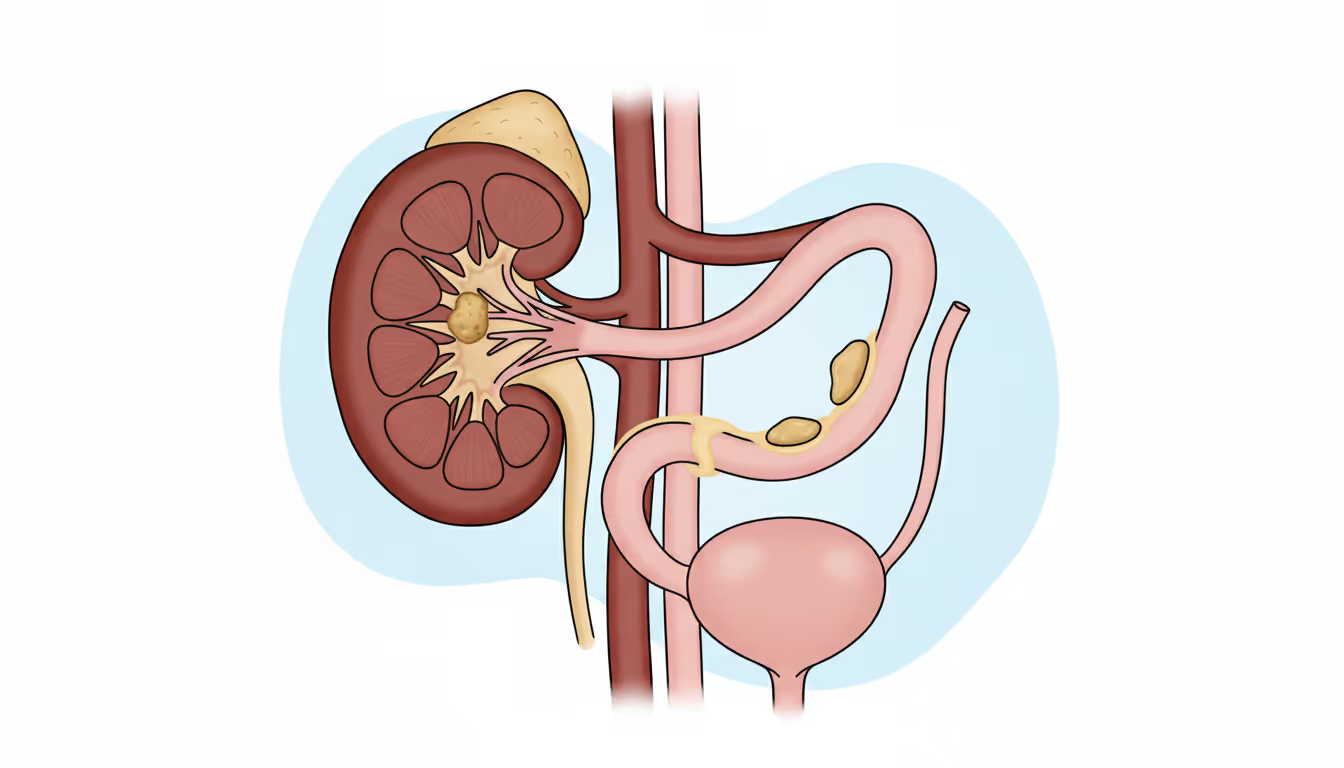
Kidney stones:These are solid formations that can develop within the kidney or originate in the kidney and move further down the urinary tract. They frequently cause discomfort and pain in the abdomen, back, or groin. The formation of kidney stones is often linked to reduced urine output or an increased concentration of stone-forming substances like calcium, oxalate, cystine, urate, and phosphate. Stones develop in the kidney's urine-collecting region and can vary in size from minute particles to large 'staghorn' stones that can fill the renal pelvis. Several factors make individuals more susceptible to kidney stones, such as low fluid intake, dehydration due to intense exercise, medications that heighten calcium levels in urine, and a history of previous stones. The pain from kidney stones typically starts suddenly, is extremely intense, comes in waves, does not improve with changes in position, and often radiates from the back to the side and into the groin. Nausea and vomiting often accompany the pain. Most stones will pass naturally within 48 hours, but some may not. The likelihood of a stone passing depends on factors such as the individual's size, any previous occurrences of passing stones, the presence of pregnancy, and the stone's size. If a stone fails to pass, consultation with a urologist may be necessary. Standard treatment includes pain relief, maintaining hydration, and administering antibiotics if there is an associated urinary infection. Kidney stones are sometimes referred to as renal calculi.




